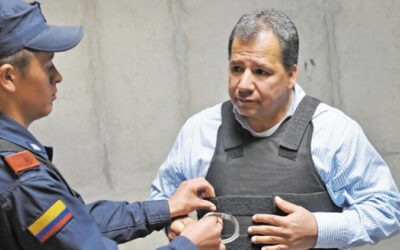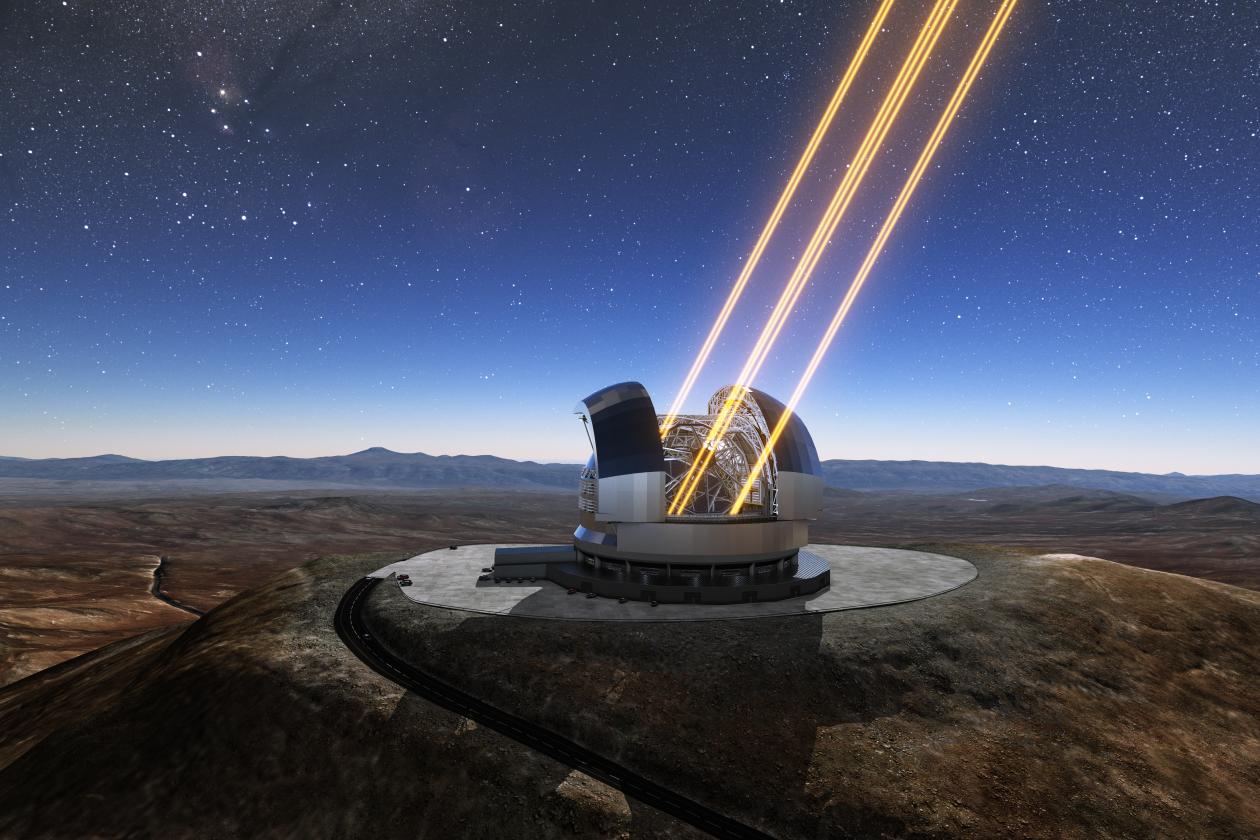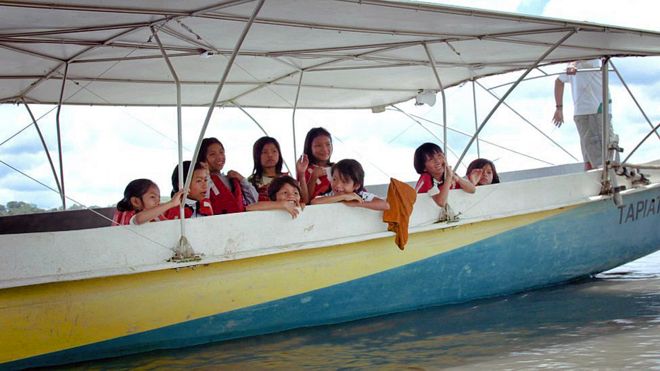Judi Lynn
Judi Lynn's JournalCorals build 'cloud umbrellas' to help keep cool under blazing sun, study says
ABC Far North By Sharnie Kim and Adam Stephen
Posted about 4 hours ago

Australian researchers have found corals build "cloud umbrellas" to protect themselves from the scorching sun, and say coral loss through bleaching events could have wider ramifications for weather and agricultural production along the Queensland coast.
A team of scientists from Griffith University, Southern Cross University and the University of Southern Queensland analysed satellite data spanning 15 years to find corals produce and release aerosols into the atmosphere to create a barrier of cloud cover to help keep themselves cool.
Associate Professor Albert Gabric from Griffith University said the study looked at a 100 square kilometre area around Heron Island in the southern Great Barrier Reef.
"The corals can get stressed by strong levels of irradiance or indeed warming, warm temperatures and ocean temperatures," he said.
More:
http://www.abc.net.au/news/2018-04-24/coral-build-cloud-umbrellas-to-protect-themselves-from-sun/9685306
Colombia extradites former paramilitary warlord to the United States
Source: Colombia Reports
by Stephen Gill April 23, 2018
Colombia on Monday extradited the founder of the country’s largest illegal armed group, the AGC, to the United States on drug trafficking charges.
Daniel Rendon, who is better known as “Don Mario,” left Colombia in the early hours of the morning for New York where he will face trial.
Mario “left at 4AM heading to New York where he has two of the three indictments against him,” confirmed his lawyer in a press statement.
The former warlord was arrested in 2009 and serving a 20-year sentence for homicide, forced disappearance, torture, kidnapping, drug trafficking and forced displacement in a prison in the capital Bogota.
Read more: https://colombiareports.com/colombia-extradites-former-paramilitary-warlord-to-the-united-states/


3/1/2016 9:22:00 AM
Who are the cellmates of Santiago Uribe?
A former governor, a former paramilitary chief and three businessmen have been detained for a long time in the cells of the Prosecutor's Office.

Santiago Uribe, Álvaro Cruz, 'Don Mario' and Julio Gómez. ' Photo: WEEK
Santiago Uribe, that farmer and the former president's favorite brother, spent his first night in a cell in the prosecutor's bunker. He was transferred to the capital after being captured as part of a process for alleged support for paramilitarism.
There, in that judicial complex in the west of Bogotá, not only lives the random confinement that is felt when entering a semi-basement full of bars where little light enters, but at the same time draw a double uncomfortable situation.
On the one hand, the bitter accusations that accuse him of integrating the group known as the '12 Apostles' that acted in Antioquia, and on the other, having to share space with a former paramilitary leader who has pointed out several times.
It is Daniel Rendón Herrera, alias 'Don Mario', who has been held for a long time in the bunker of the Prosecutor's Office. The financial chief of the Centauros Bloc of the AUC has said that relations with Santiago Uribe were key to achieving the extension of paramilitary power in Antioquia.
More:
https://translate.google.com/translate?sl=es&tl=en&js=y&prev=_t&hl=en&ie=UTF-8&u=http%3A%2F%2Flinkis.com%2Fba51t&edit-text=&act=url
Western Media Shorthand on Venezuela Conveys and Conceals So Much
APRIL 23, 2018
A Reuters article (4/18/18) reports that the European Union “could impose further sanctions on Venezuela if it believes democracy is being undermined there.”
The line nicely illustrates the kind of journalistic shorthand Western media have developed, over years of repetition, for conveying distortions and whitewashing gross imperial hypocrisy about Venezuela. A passing remark can convey and conceal so much.
The EU’s sincerity in acting on what it “believes” about Venezuelan democracy is unquestioned by the London-based Reuters. Meanwhile Spain, an EU member, is pursuing the democratically elected president of Catalonia, Carles Puigdemont, for the crime of organizing an illegal independence referendum last year. Weeks ago, he was arrested in Germany at Spain’s request, and other elected representatives have been arrested in Catalonia, where Spain’s federal government deposed the elected regional government after the referendum.
In July 2017, a few months before the referendum in Catalonia, Venezuela’s opposition also organized an illegal referendum. One of the questions asked if the military should obey the opposition-controlled National Assembly, which was an extremely provocative question, given the opposition’s various efforts to overthrow the government by force since 2002. The referendum required an extremely high level of political expression, organization and participation. It allegedly involved 7 million voters. The Venezuelan government disregarded the results—as Spain disregarded the Catalan referendum results—but unlike Spain, did not jail people for organizing it, or send police to brutally repress voters. In fact, two weeks later, Venezuelan voters (overwhelmingly government supporters, since the opposition boycotted and did not field candidates) were violently attacked by opposition militants when they elected a constituent assembly. The attacks resulted in several deaths.
More:
https://fair.org/home/western-media-shorthand-on-venezuela-conveys-and-conceals-so-much/
Macri's Argentina Has Become a Hotbed of Neoliberalism and Police Violence
Sunday, April 22, 2018
By Hugo Goeury, Truthout | News Analysis
After 12 years of center-left rule under Néstor Kirchner (2003-2007) and his wife Cristina Fernández de Kirchner (2007-2015), Argentina took a decisive turn to the right in November 2015 with the election of Mauricio Macri, a former businessman and mayor of Buenos Aires from 2007 to 2015.
If the first decade of the 21st century had seen left and center-left governments dominate the Latin American political scene -- a period that is often called the "Pink Tide" -- Macri's election marked the beginning of a regional shift to the right. Since then, the left has faced many challenges and setbacks in Latin America. Those include, among others: the controversial removal of Brazil's first female president Dilma Rousseff by parliament in August 2016, followed by the current judicial attacks aimed at preventing former President Luiz Inácio Lula da Silva from running in the upcoming presidential election; the recent election of right-wing, multibillionaire and former president (2010-2014) Sebastián Piñera in Chile; and the confrontation between Rafael Correa and his successor, ex-Vice President Lenín Moreno in Ecuador.
Meanwhile, in Argentina, the resurgence of the right and the implementation of Macri's neoliberal project has not only been synonymous with constant assaults against social rights, but also of increasing levels of state violence.
Presidentially Sanctioned Trigger Happiness
On December 8, 2017, Frank Joseph Wolek, a 54-year-old American tourist, was violently assaulted while visiting the working-class neighborhood of La Boca, located in the southeastern part of the Argentine capital Buenos Aires. Among those who witnessed the altercation was Luis Chocobar, an off-duty police officer. As they were fleeing the scene, Chocobar shot one of two assailants, 18-year-old Pablo Kukoc, twice in the back. Five days later, Kukoc died from his injuries in one of the capital's hospitals.
More:
http://www.truth-out.org/news/item/44228-macris-argentina-has-become-hotbed-of-neoliberalism-and-police-violence
Following Questionable Election, Honduran Government Debuts New Censorship Law
from the securing-the-cyber-so-future-generations-can-waste-away-in-prison dept
Free Speech
by Tim Cushing
Thu, Apr 19th 2018 3:33am
The masterplan for censorship: follow up a highly-questionable election with a "cybersecurity" law granting the government power to shut down critics and dissenting views. That's what's happening in Honduras, following the reinstallation of Juan Orlando Hernandez as president following an election "filled with irregularities."
The new law mandates the policing of "hate speech," as defined by a government that would love to see its critics deprived of an online platform. Whatever the government declares to be hateful must be taken down within 24 hours. Failure triggers fines and third-party platforms will be held responsible for content created by users.
While the new law does not directly target the social media platforms, activists say: "In its current state, it requires any service or website that includes user-generated content to process complaints and remove “hate speech” or discriminatory content within 24 hours."
"Should online intermediaries fail to do so, their services could be fined or blocked. The latest draft of the bill also creates a national cybersecurity committee to receive reports and relay them to websites and companies, and to develop policy strategies on issues ranging from cybercrime to hate speech and fake news," Javier Pallero, Digital Rights activist focusing on the Latin American region explained, according to Access Now.
More:
https://www.techdirt.com/articles/20180414/09232039625/following-questionable-election-honduran-government-debuts-new-censorship-law.shtml?utm_source=feedburner&utm_medium=feed&utm_campaign=Feed%3A+techdirt%2Ffeed+%28Techdirt%29
The Smart Imperialism Crowd
BY
ANDRÉS PERTIERRA
A new diplomatic memoir makes a "national interest" case for warmer relations with Cuba.
Our Woman in Havana is the new nearly three-hundred page memoir by career diplomat Vicki Huddleston, focusing on periods in her career where she played a role on crafting or implementing American foreign policy towards Cuba. Like most memoirs of this kind, it is best understood as half-diary, half-pamphlet, with reminiscences of her time in office bookended by her views on the present and future of US policy towards Cuba. Diplomatic memoirs of this kind have a long history of informing US policy towards Cuba. Former diplomat Wayne Smith’s The Closest of Enemies: A Personal and Diplomatic History of the Castro Years is one of the better known examples. As for Huddleston, she uses her book to make the liberal case for engagement with Cuba, highlighting the ways in which Republicans have undermined the normalization of relations, the counterproductive nature of the embargo, and the numerous potential benefits of better relations between the two countries.
While not devoting a significant part of her book to it, Huddleston does acknowledge the rapacious and colonialist bent of past American policy towards Cuba. Fairly early on, she notes that “the contradiction that haunts our relationship with Cuba is that the United States has always coveted the island. And perhaps this foundational contradiction is what makes the US-Cuba relationship so fractious.” As she acknowledges towards the end of the book, “the United States still wants to be the preeminent foreign power in Cuba.” While these sections by no means constitute a complete catalogue of Cuba’s grievances, it is noteworthy that she pushes back against the false historical memory of the United States as benefactor and patron which still exists on the American right and among a fair number of those in the center.
It is therefore puzzling that in several other sections of the text she tries to frame American foreign policy as the victim of an intra-familial squabble between Cubans, Cuban exiles, and Cuban Americans. Time and again in her memoir, she argues that US policy toward Cuba has been “principally designed to help Cuban Americans regain the country they lost.” Much of the world, she says, is confused by American policy towards Cuba, but “what they fail to understand is that our Cuba policy is actually domestic policy, not foreign policy.” “American presidents,” she argues in a later chapter, “for domestic political gain, have allowed themselves to become entangled in a family feud” between Cuban American exiles and the Cuban government.
While right-wing Cuban exiles and Cuban Americans have undoubtedly been well organized and effective in helping shape Cuba policy, readers should be wary to attempts to shunt responsibility for poor relations between the two countries onto their shoulders. Organizations like the Cuban American National Foundation (CANF) and politicians like Ileana Ros-Lehtinen, Bob Menendez, Marco Rubio, and others have had such success because their objectives have often coincided with (or at least not been diametrically opposed to) established American foreign policy goals — specifically, the overthrow of the post-1959 government in favor of a new economic and political order favorable to American business interests and geo-strategic military calculations.
More:
https://www.jacobinmag.com/2018/04/cuba-memoir-diplomats-normalization-trump
Dutch industrial group VDL joins Atacama biggest eye on the sky project
April 20, 2018

Artist’s impression: ESO
VDL ETG Projects, part of the diversified industrial VDL Groep, has been awarded a contract to build the support structure for the main mirror of the Extremely Large Telescope (ELT) in northern Chile, the Eindhoven-based company said in a statement late Thursday.
The European Southern Observatory will build the world’s largest telescope in the Atacama desert at an elevation of over three kilometres. The support structure consists of 798 individual support structures for mirror segments, which together form the telescope’s main mirror which has a diameter of over 39 metres. The project will be completed in 2024.
The order is worth several tens of millions of euros, the company said. VDL comprises 94 individual companies and is owned by the Van der Leegte family.
ESO Director General Xavier Barcons and VDL Groep President and CEO Willem van der Leegte signed the contract for the order on Thursday at the headquarters of the ESO in Garching, near Munich. Van der Leegte said this marked the first time an astronomy-related contract of this size has gone to a Dutch party.
More:
https://www.dutchnews.nl/news/2018/04/dutch-industrial-group-vdl-joins-atacama-biggest-eye-on-the-sky-project/
~ ~ ~ ~ ~
Older article:
Biggest-Ever Telescope Approved for Construction
By Mike Wall, Space.com Senior Writer | December 4, 2014 03:00pm ET

An artist's illustration depicts the European Extremely Large Telescope (E-ELT) in its enclosure. It eventually will be the world’s largest "eye on the sky."
Credit: ESO/L. Calçada
The world's largest telescope has gotten its official construction go-ahead, keeping the enormous instrument on track to start observing the heavens in 2024.
The European Extremely Large Telescope (E-ELT), which will feature a light-collecting surface 128 feet (39 meters) wide, has been greenlit for construction atop Cerro Armazones in Chile's Atacama Desert, officials with the European Southern Observatory (ESO) announced Thursday (Dec. 4).
"The decision taken by Council [ESO's chief governing body] means that the telescope can now be built, and that major industrial construction work for the E-ELT is now funded and can proceed according to plan," Tim de Zeeuw, ESO's director general, said in a statement. "There is already a lot of progress in Chile on the summit of Armazones, and the next few years will be very exciting." [Photos: World's Largest Telescope Being Built in Chile]
More:
https://www.space.com/27930-european-extremely-large-telescope-construction-approved.html
Wonderful images of telescopes already in use in Chile's Atacama Desert:
https://images.search.yahoo.com/search/images;_ylt=AwrEwNf1vNpaftkAwomJzbkF;_ylu=X3oDMTBsZ29xY3ZzBHNlYwNzZWFyY2gEc2xrA2J1dHRvbg--;_ylc=X1MDOTYwNjI4NTcEX3IDMgRhY3RuA2NsawRiY2sDZWFlcjdmOWNnbDI5ZyUyNmIlM0Q0JTI2ZCUzRGZFVE9PSzFyWUgzS3VfNWJGaWk4THF3a19jX3JYc19ya1E2azM1dGQ0N2NwM1EtLSUyNnMlM0RkayUyNmklM0RTZ0R4MElPcUVYTE9lUUhDSGhvNQRjc3JjcHZpZANzYzRVSmpFd0xqSGxPMmQ2V1FxSk1BT1VNall3TUFBQUFBQXR5bFRfBGZyA3NmcARmcjIDc2EtZ3AEZ3ByaWQDWGRLb1hHQk1TeVNiOEx6MXlxZWF1QQRtdGVzdGlkA251bGwEbl9zdWdnAzAEb3JpZ2luA2ltYWdlcy5zZWFyY2gueWFob28uY29tBHBvcwMwBHBxc3RyAwRwcXN0cmwDBHFzdHJsAzI1BHF1ZXJ5AyBUZWxlc2NvcGVzIEF0YWNhbWEgQ2hpbGUEdF9zdG1wAzE1MjQyODUwMzMEdnRlc3RpZANudWxs?gprid=XdKoXGBMSySb8Lz1yqeauA&pvid=sc4UJjEwLjHlO2d6WQqJMAOUMjYwMAAAAAAtylT_&p=+Telescopes+Atacama+Chile&fr=sfp&fr2=sb-top-images.search.yahoo.com&ei=UTF-8&n=60&x=wrt
Peru's ex-president Fujimori in court over 1992 massacre
20 April 2018 - 22H59

20 April 2018 - 22H59Peru's ex-president Fujimori in court over 1992 massacre
© Peruvian Judiciary/AFP | Ex-president Alberto Fujimori insisted in court that he was not a flight risk,
even though he is renewing his passport
LIMA (AFP) -
Peruvian ex-president Alberto Fujimori, just four months out of prison under a controversial pardon, was in court Friday facing charges linked to the killing of seven farmers in 1992.
Fujimori, president from 1990-2000, had been serving a 25-year prison sentence for crimes that included commanding death squads that killed suspected civilian sympathizers of leftwing guerrillas his regime was fighting.
The ex-president was pardoned on December 24 by then-president Pedro Pablo Kuczynski on humanitarian grounds because of ill health.
A criminal court, however, later ruled that Kuczynski's pardon did not apply to the case of the slain farmers.
More:
http://www.france24.com/en/20180420-perus-ex-president-fujimori-court-over-1992-massacre
Haunted by ghosts of its dictatorship, Paraguay set to pivot back to the right in election
Source: Guardian
The military regime of Alfredo Stroessner jailed, tortured and ‘disappeared’ opponents. Now the son of Stroessner’s private secretary is likely to become president
Laurence Blair in Asunción
Fri 20 Apr 2018 05.00 EDT
Fifty-eight years later, when Rogelio Goiburú dug up the body in a remote part of eastern Paraguay this March, a few teeth were all that were left to identify it.
“We’re fighting against time,” he said. Paraguay’s soil is highly acidic, he explained. “It eats bones very quickly, so the DNA disappears, and it’s much harder to obtain a genetic profile.”
Goiburú, 62, heads Paraguay’s commission for historical memory and reparation. Since 2011, the underfunded body has documented some 450 desaparecidos, located and exhumed 37 bodies, named four, and returned them to living relatives where possible.
All were victims of the 1954-89 regime of Alfredo Stroessner, which jailed, raped, tortured and “disappeared” opponents under the auspices of a US-backed anti-communist crusade.
Read more: https://www.theguardian.com/world/2018/apr/20/paraguay-presidential-election-past-dictatorship-right
The Amazons solar-powered river bus
By Laura Plitt
BBC Mundo, Ecuador
20 April 2018

A school commute with a difference
How can you create public transport in the jungle without polluting it? The isolated Achuar peoples of Ecuador have created an ingenious solution.
A couple of hours before dawn in Kapawi, a village in a remote corner of the Ecuadorian Amazon, a group of men gather to drink litres of tea made from the guayusa plant. One by one they then disappear into the dark to vomit.
This ritual, known as guayusada, is designed to purge and energise and culminates in a sharing of dreams from the night.
It was during one of these ceremonies more than half a century ago that a dream was shared of a "canoe of fire".
More:
http://www.bbc.com/news/business-43798036
![]()
![]()
![]()
Profile Information
Member since: 2002Number of posts: 160,524